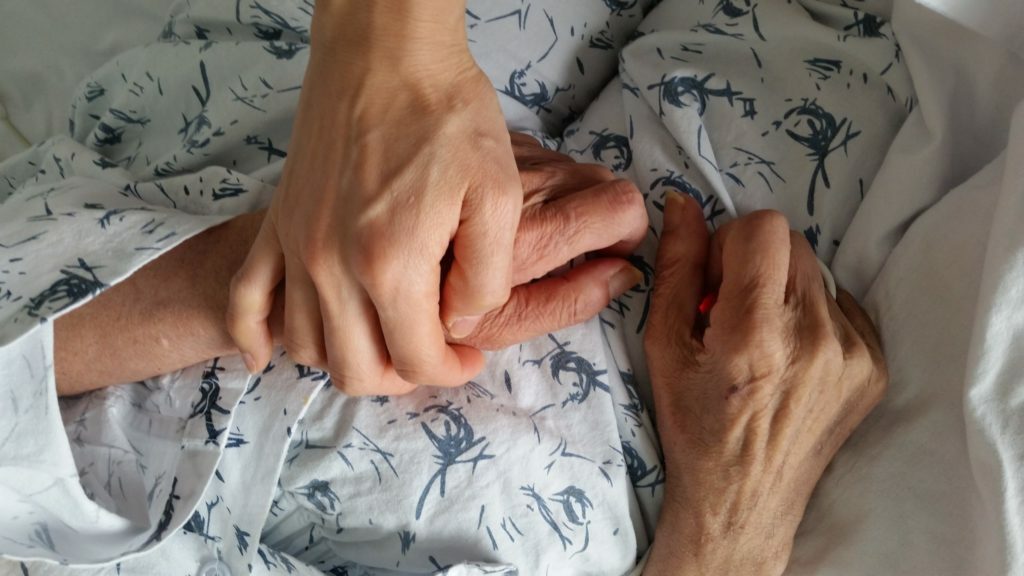It’s not a topic most of us like to think about, but at some point, we all will die. And while we may not be able to control when that happens, we can control how we die. End-of-life care planning is a way to ensure you get the medical care you want—and avoid the care you don’t want. Keep reading to learn more about why end-of-life care planning is important and how to get started.
How should I organize my end-of-life care?

Depending on religious, financial, and personal factors, end-of-life care spans many options. What you choose for your end-of-life care should be your decision, so ensure you thoroughly exhaust your options and create a plan that works for you. The first thing you should look into is funeral costs. Low cost cremation is an affordable alternative to traditional burial, and it is becoming increasingly popular. Cremation is much cheaper than a conventional burial, and the average cost of a funeral with cremation is about $2,000, while the average cost of a funeral with burial is about $7,000. Another reason people may choose cremation is that it is more environmentally friendly than a traditional burial. You may also want to plan the funeral’s location and compare costs between locations.
You’ll also want to consider your belongings. Some items may be more important to you than others, so take this time to assess where you want your belongings to end up. This means sorting through everything and deciding what you want to keep and what you want to donate or discard. It can be a complex process, but it’s important to make things easier for your loved ones during a difficult time. The best way to organize your belongings is by category. You can start with clothes, then move on to furniture, books, and other possessions. Make sure you have an accurate inventory of everything you own, including its location. This will help make the process easier when it comes time to donate or discard items. Also, consider potential hospital, hospice, or nursing home care ahead of time. By choosing directives and locations you know you can count on, you and your loved ones will appreciate the hassle-free experience in the future.
Why is planning for end-of-life care so important?

End-of-life planning is crucial because it ensures that a person’s wishes are known and documented if they are unable to communicate them themselves. This can help ensure that a person’s final days are as comfortable and stress-free as possible. Often people do not want to think about death or their mortality, but this can lead to them receiving subpar care at the end of their life. Planning end-of-life care allows you to choose the type of care that is right for you and gives your health professionals a roadmap for how they should treat you as your illness progresses.
Planning can save your loved ones money long-term. If there is no plan in place and something happens to you suddenly, they may need to hire a lawyer or go through probate court to be able to make decisions on your behalf. This process can be expensive and time-consuming. By planning ahead, your loved ones can relax and grieve in peace.
How do I tell my loved ones about my end-of-life plans?
When it comes time to tell your loved ones about your end-of-life care plans, it’s important that you’ve researched what you want and how you want to communicate those wishes. The talk should not be rushed or sprung on them unexpectedly. Find the time when everyone can be relaxed and comfortable, and choose a quiet place where there will be no distractions. Start by explaining why you’re talking about this and let them know that you’ve been thinking about your future and what you would like to happen if something happens to you. This will help put them at ease and show that you’re taking this seriously.
Be clear about what you want. Don’t leave any room for interpretation; make sure your loved ones know what your wishes are. This includes specifying whether or not you want heroic measures taken if something happens to you, whether or not you wish to be kept on life support, and how much contact (if any) you would like with family and friends during your final moments. Listen to their concerns and answer any questions they have honestly and openly. If there is anything they don’t understand, take the time to explain it in detail until they do understand it completely.
No one knows when their time will come, so it’s important to plan ahead for end-of-life care. Planning for end-of-life care can ensure that your wishes are carried out and that your loved ones are taken care of financially.











